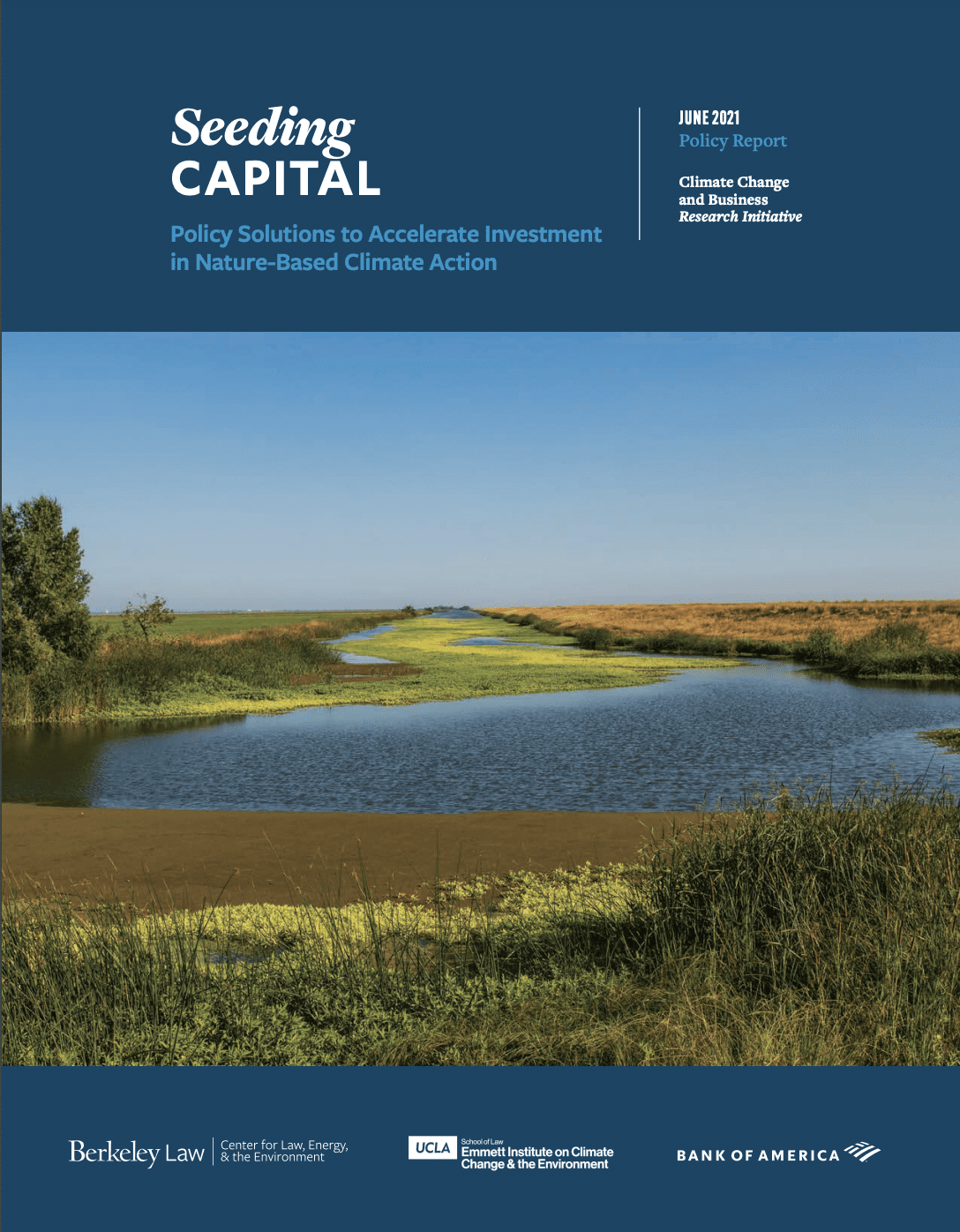 June 2021
June 2021
Some of the most promising, cost-effective climate change solutions are in our own backyards. Trees, plants, soils, and ecosystems like wetlands can store and ultimately bury carbon, helping California and other jurisdictions achieve the “negative emissions” needed to meet long-term carbon neutrality goals. These nature-based solutions can generate significant benefits beyond storing carbon, such as cleaning water, enriching biodiversity, providing more equitable access to urban green spaces, and improving public health outcomes.
Yet nature-based climate solutions can be difficult to deploy because of various funding and financing barriers, despite the potential for reliable returns for a range of stakeholders. Resource managers and landowners may struggle to connect with the right financing or funding pathways to development. Similarly, investors may lack sufficient information to identify best-fit vehicles and model returns. As a result, despite rapidly growing understanding of the need to fund nature-based climate and resilience projects, experts have identified a biodiversity funding gap in the hundreds of billions of dollars.
To address these challenges, CLEE and our partners at UCLA Law’s Emmett Institute on Climate Change and the Environment issued the new report, Seeding Capital. The report proposes several policy solutions and innovations to tackle these challenges, including:
- Aligning nature-based investment products with existing international standards and labels
- Leveraging California Environmental Quality Act (CEQA) mitigation to fund projects on natural and working lands
- Standardizing accounting practices for measuring greenhouse gas impacts, environmental impacts, and community impacts
- Conducting advance planning and permitting for multiple potential projects to create “portfolios” for grantors and investors to finance
To discuss the report’s findings and recommendations to bolster investment in nature-based solutions, CLEE and UCLA Law’s Emmett Institute will host a free webinar on Wednesday, June 16 from 10:00 AM to 11:00 AM Pacific Time with an expert panel, including:
- Newsha Ajami – Director of Urban Water Policy and Senior Research Scholar at Stanford Woods Institute for the Environment
- Amanda Hansen – Deputy Secretary for Climate Change at the California Natural Resources Agency
- Zach Knight – CEO and Co-Founder of Blue Forest Conservation
Download the report here.
Watch the webinar:
Contact Ethan Elkind, Katie Segal, or Ted Lamm for more information.